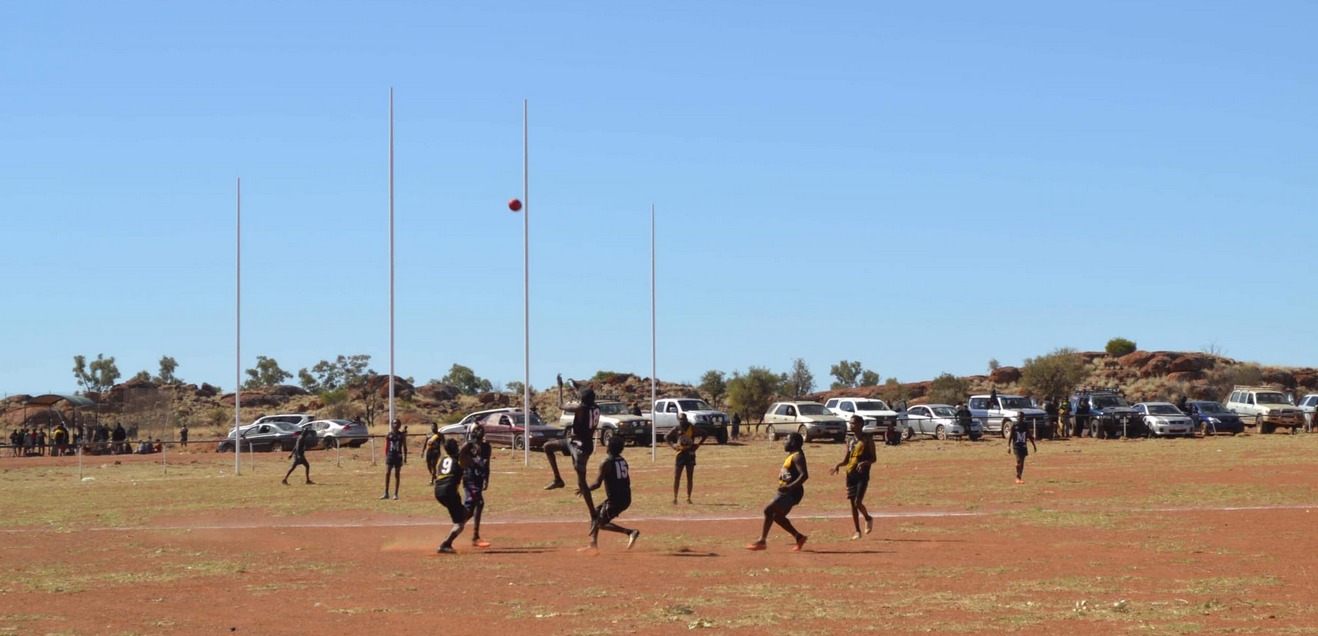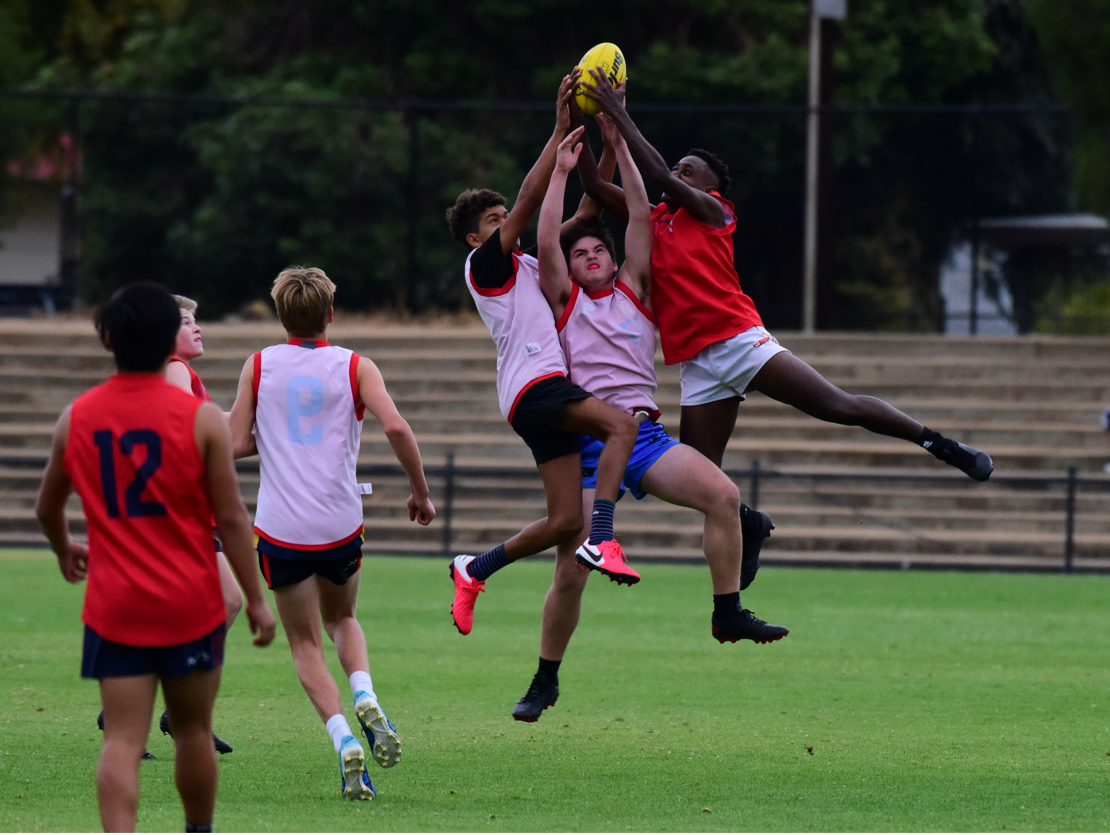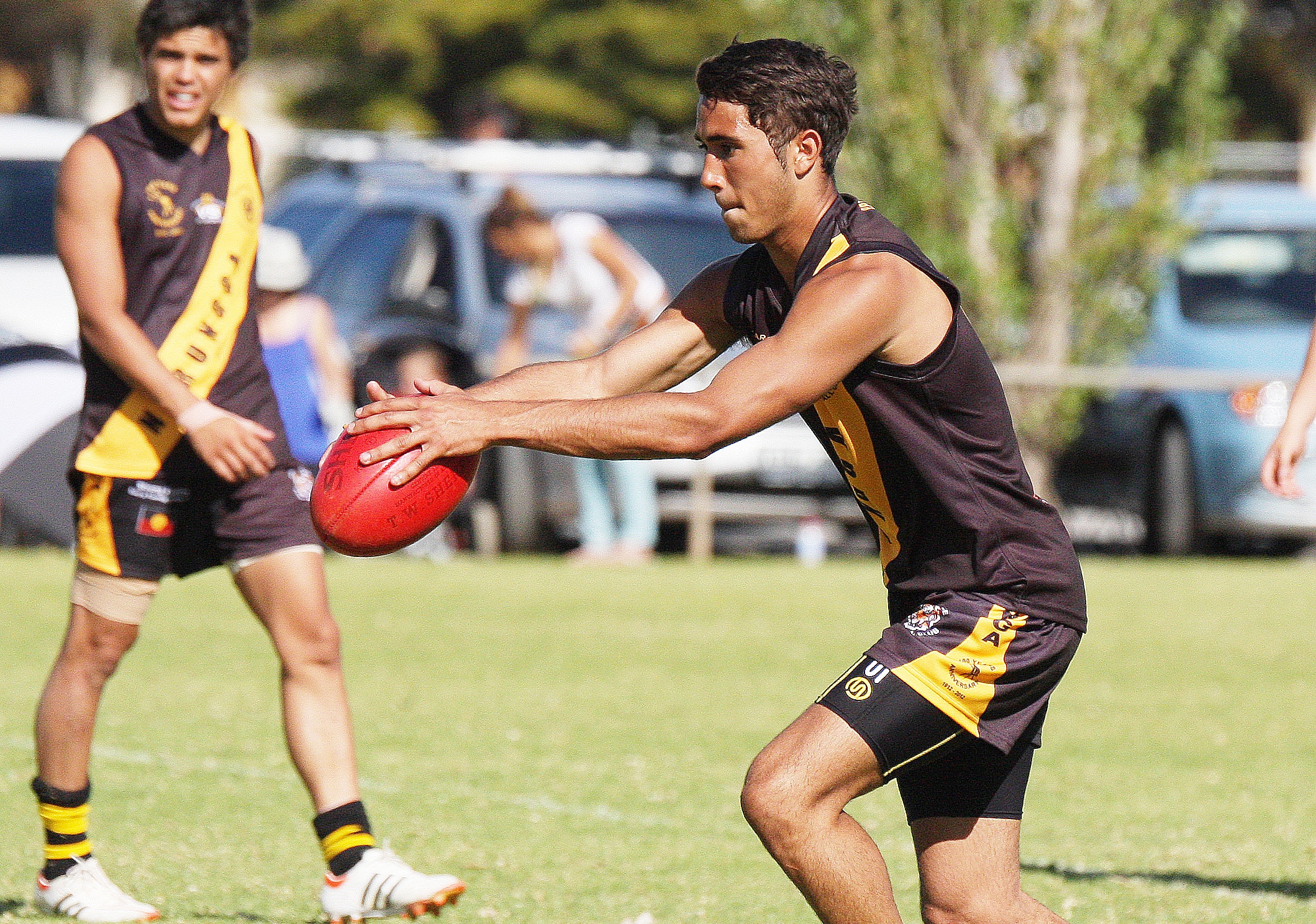
SANFL APY League expands in season 2025
The 2025 SANFL APY League season kicks off this weekend, with a record 12-team competition.
24 April 2025
By ALEXANDRA BULL
The 2025 SANFL APY League season officially kicks off this Saturday, April 26 – now with a record 12 teams, making this year’s competition the largest in its 19-year history.
Spanning over 200,000km in remote South Australia, Northern Territory and Western Australia, the APY League is an integral part of SANFL’s First Nations football programs.
The traditional APY Lands teams (Indulkana, Mimili, Fregon, Pukatja, Wintjalangu, Amata, Central Swans and Pipalyatjara/Kalka) will be joined this season by Northern Territory-based teams Finke, Imanpa, and Mutitjulu, and Western Australia team Wingellina.
All teams are fixtured to play each other once, followed by ladder-based minor round matchups (e.g. 1st v 2nd, 3rd vs 4th) leading into finals.
Double headers will be played at two venues every Saturday, with another double header to be played at a separate venue on Sunday to allow for six football, and six softball games to be played every round, with SANFL staff to attend every venue.

Action from the 2024 SANFL APY League.
Adopting the Hostplus SANFL League’s top five finals format, the APY League finals series will begin on August 9. The Grand final will be held on Saturday, August 30 – one of the earliest football deciders in 2025, timed to avoid Central Australia’s intense spring heat.
“The league is a unique platform engaging communities across South Australia, Northern Territory, and Western Australia, with iconic venues including Finke, and Mutitjulu at the base of Uluru,” SANFL Head of Community Football Shawn Ford said.
“The SANFL APY League continues to grow in popularity, strengthening ties with Anangu communities and offering a vital space for cultural connection and education.
“The league also continues to be umpired by Anangu Community members in all minor round games.
“SANFL is proud to support the League’s sustainability and deepen cultural understanding among its staff through collaboration with traditional Anangu custodians.”
Related News
-
 Indigenous
IndigenousEx-Port Adelaide and Central District player proud to design club guernsey for SFL Reconciliation Round
-
 Indigenous
IndigenousSANFL APY Lands League Grand Final Preview
-
 Indigenous
IndigenousSA indigenous icon Sonny Morey
-
 Indigenous
IndigenousSANFL Statement: APY League postponement
-
 Indigenous
IndigenousSANFL clocks up the kilometres to unearth diverse talent
-
 Indigenous
IndigenousAPY League Update: football Grand Final rescheduled
-
 Indigenous
IndigenousUpdate: SANFL APY League Grand Final
-
 Indigenous
IndigenousYP football’s rich Indigenous history







